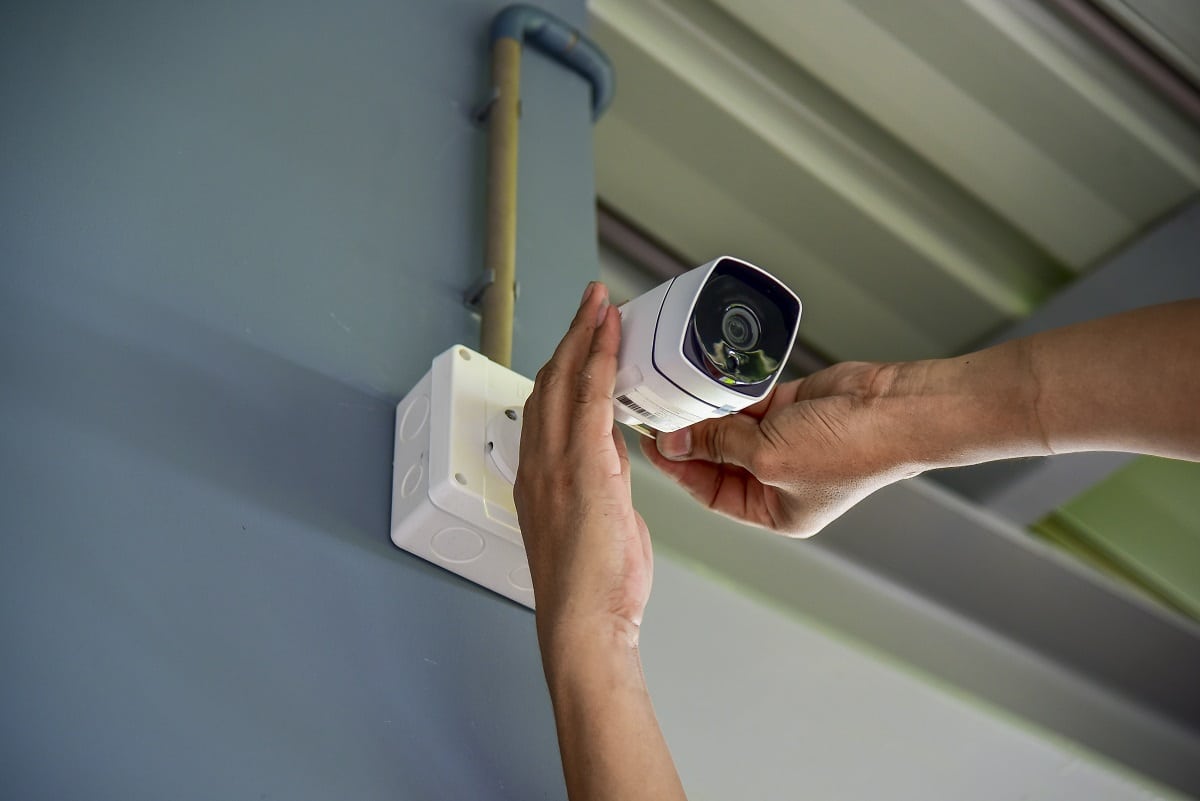Commercial property managers planning to install a surveillance system must ask this one question: how long should CCTV footage be kept? Of course, you want to hold on to your video recordings for as long as possible in case you need them for any legal reason.
But the answer to this question depends on several factors. The video resolution, the number of cameras you’ll install and the storage capacity you have all determine how long you can and should store surveillance footage.
How long do businesses keep CCTV footage?
Businesses normally save at least a month’s worth of security camera footage, but larger corporations store surveillance recordings for up to three months.
Some businesses keep CCTV footage for longer, depending on what the video recordings will be used for. If you need to submit footage as evidence when reporting a theft or burglary, then you’ll need to keep it until the legal proceedings are over.
Industries also have their own requirements for video surveillance storage. Some industries must save surveillance footage for a specific period to comply with regulatory requirements. For example, government agencies in Queensland are required to keep footage that’s part of continuous surveillance and isn’t needed for investigative purposes ‘until business action is completed’. This is stated in the General Retention and Disposal Schedule.
Your recording method also affects how much surveillance footage is available at any given time. Your security cameras can record 24/7, based on a schedule or based on motion. Footage from continuous video recording gets deleted sooner than other surveillance methods since the storage fills up faster.
What happens to old surveillance footage?
Australia’s Privacy Act 1988 considers any security camera footage that makes a person identifiable as personal information. As such, businesses covered by the Privacy Act are required to destroy surveillance footage when it’s no longer needed.
The good news is that CCTV footage gets deleted automatically, so you don’t have to periodically erase the recordings yourself. Your CCTV’s Digital Video Recorder (DVR) saves footage on a rolling 30-, 60- or 90-day schedule, depending on how long you want to keep them and how much storage space you have. After this period, or once the hard drive fills up, the DVR will start recording your oldest footage.
Options for Video Storage
Full video surveillance systems often store footage on an external recorder. Analogue CCTV cameras use DVRs, whereas Internet Protocol (IP) cameras use Network Video Recorders (NVRs). The kind of storage technology you have also affects how long you can keep surveillance footage.
Digital Video Recorders
Analogue video surveillance systems are the traditional cameras used in CCTV systems. They’re a popular choice because they’re affordable, easy to install and can be monitored remotely. Analogue cameras, however, have limited functionalities compared to the more advanced options, like IP CCTVs.
DVRs require a point-to-point connection with each camera, which makes for complicated cabling. Analogue cameras also have a lower video resolution and frame rate, so they’re not ideal for areas that have a lot of motion or need to be seen in high detail. You can’t zoom in digitally on the video either.
Analogue CCTVs have limited coverage as well; one analogue camera isn’t enough to cover the same area size as one IP camera.
Ultimately, a DVR can’t give you the storage space you need for a surveillance system in a huge commercial space.
Network Video Recorders
IP security cameras are digital video cameras that transmit and receive data over the internet. Unlike DVRs that need to be connected by cable to the cameras, NVRs can be placed anywhere as long as they’re on the same LAN network as the IP cameras.
Because the files are sent over the internet, IP CCTVs offer a higher video resolution compared to analogue cameras, making them ideal for locations that need to be seen in high detail or monitored at night.
IP security cameras are easier to install compared to analogue systems because they require less equipment. Some IP surveillance systems also come with a mobile app, so you can monitor your building anywhere you go.
Video encryption is another advantage of storing security footage on NVRs. This protects your files from hackers, as well as the identity of those who were recorded in your surveillance footage.
One downside of IP cameras is that they generate larger files because of the high video resolution, so they overwrite footage faster. Luckily, there are NVRs with multiple hard drive slots that let you increase your storage capacity.
MicroSD Card
Many security cameras have options for internal storage instead of using external recorders like an NVR or DVR. This storage option typically houses footage within a microSD card that’s located inside the camera.
The great thing about storing surveillance footage in a microSD card is that it doesn’t rely on internet connectivity or wiring. Sometimes your network connection isn’t fast enough to record videos in high definition, and cabling installation can be challenging for cameras that are spaced far apart.
Internal storage also lets you access your footage immediately since you don’t have to wait for it to transfer into your hard drive.
Some commercial property owners might find issues with the fact that microSD cards have limited storage capacity. Most microSD card brands only offer up to 1TB capacity, whereas external hard drives can store up to 8 TB. Because of this limitation, these security cameras are typically only used during events or for motion detection.
Storing and Securing Surveillance Footage
There’s no one right way to store your security camera footage, but different storage options do have advantages that work in your favour. If you need constant surveillance for your commercial property, we recommend an IP security camera system that records 24/7. If you only need to record an event, however, internal camera storage should suffice.
To learn more about CCTV systems and other premises security solutions, browse through the SMS Security blog. SMS Security has been providing commercial clients in Perth with superior security solutions since 2006, from alarm systems to access control systems.
For enquiries about our products and services, fill out our online form.









